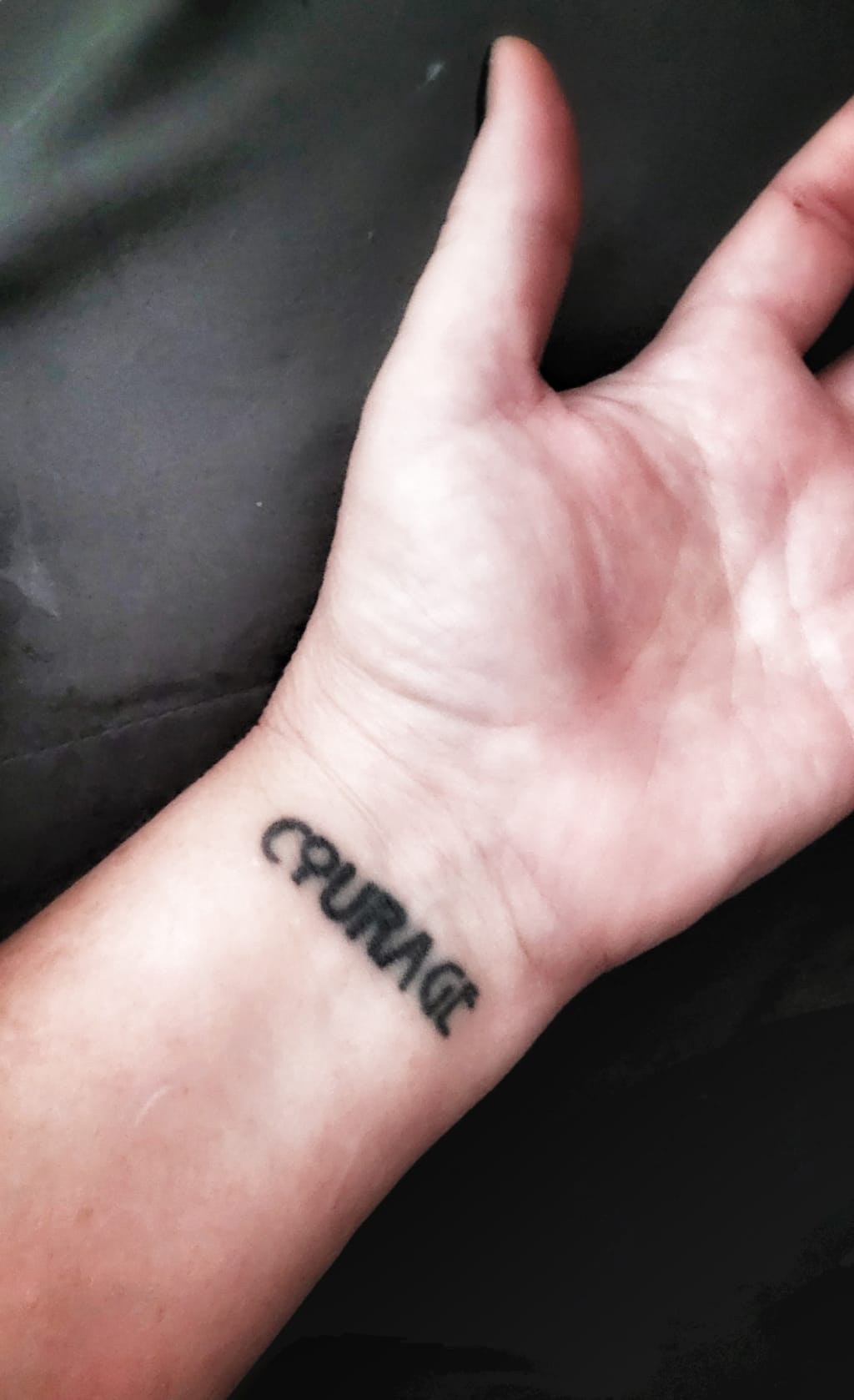Psych Ward? Not Me, I'll Just Gaily Skip Along
Hospitals aren't the place for PTSD and Post-concussion Symptoms

No, I’ll never report suicidal ideation. And no, I’ve never taken myself to the hospital to be admitted, although I’ve seriously considered and attempted suicide countless times. I know this is wrong. But I have a bigger fear of psych wards than I do suicide.
I know, I know. This is so careless of me to even mention it. And if you’re thinking of suicide, for goodness sake, don’t listen to me. Call an emergency Suicide Hotline. Go to the hospital, if there’s no other alternative. Or better yet, go to a friend and tell them you’re thinking of killing yourself. A friend will help.
A psych ward? I can’t promise you’ll come out feeling better than you went in.
As I write this, a friend who also lives with post-concussion syndrome went to the hospital emergency ward last night. She declared she had a brain injury, PTSD, post-concussion syndrome (PCS), and said she didn’t feel right. She said she felt she might harm herself. She was, let’s say, rather dramatic, as her personality dictates. And she just spent the night in the psych ward. Drugged and placed in a concrete room. She describes it as being the worst 24 hours of her life, even worse than when she went to jail for brain injury-related outbursts. She’s an artist. They gave her crayons.
I know, I know, this is so wrong.
It’s so wrong because there are half a million people living with post-concussion syndrome in Ontario, and no one knows how to treat us. There’s a huge chasm between immediate post-injury treatment and the ongoing support offered by rehabilitation and community-based programs. What happens to us when we’re living independently and we need urgent but temporary help, and there’s nowhere to go but the psych ward?
I’ll say suicide is in my genes; several family members have been taken by it. And I began my suicide journey at 17, when I took an entire bottle of painkillers. I didn’t get out of bed for three days, and I was temporarily deaf in my right ear. No one noticed.
After my third brain injury, the idea of suicide took over my brain’s executive function. My marriage, my job, my athletic life, and my community volunteering were all in jeopardy. I’d lost touch with everything I thought I was.
Now, I’ve never gone to the hospital when I’ve been suicidal, because my mom spent a lot of time in a psych ward when I was a kid. She was gone for weeks and never came out better. She came out on a different drug, usually fatter, and she still claimed the dog was talking to her.
My mom suffered from depression and bipolar disorder. Doctors sort of knew what they were treating.
With post-concussion syndrome, doctors don’t know what they’re treating, but it can often present itself as suicidal ideation. Of course we think of killing ourselves! Our lives have been turned upside down—we’ve lost jobs, families, friends, and most humiliating, our identity. But we look fine, and nobody believes we’re in excruciating mental, cognitive, and physical pain.
Do you actually think I can walk into a hospital emergency with a self-diagnosis? Well, hello triage, I’m thinking of killing myself, but it’s really only a trick being played on me by my brain injury. Help my brain, help the illness. Can you do that for me? Oh yes, I’m completely lucid and sane…I accidentally slipped and the knife fell against my forearm. I’ll be fine.”
I’m not convinced that incarceration or hospitalization helps us. Instead, I believe it shames us; most who suffer with PCS or PTSD feel guilty enough already, and our self-esteem doesn’t really need another kick to the gut. I understand and appreciate that for others, it can and has been a life-saver. But for me, I’m more inclined to turn to other urgent, temporary fixes like a good shot of Ativan and pulling the blankets over my head.
During my post-concussion rehabilitation courses (offered at Brock University in conjunction with the Ontario Brain Injury Association), our instructors taught us to think, “Brain First.” Now, when I encounter strange or erratic behavior (physical or mental), my training reinforces the idea that while an individual may be struggling to speak or may be nonsensical, I consider what is happening in the brain to affect that presentation.
Now, I’m not a first responder, and I’m in awe of their ability to work under such stressful conditions (and thankful to more than a few), but I’d really like to witness a “Brain First” protocol in emergency situations. I appreciate that other vitals are, well, vital when assessing a person in crisis, but perhaps we can work together to develop a process by which brain injury, PCS and PTSD can be quickly identified. I do believe it could help save lives and keep the brain-injured out of psych wards and jails.
Offering Medic-Alert bracelets and/or brain injury identification cards is a start. Education for health-care workers is also critical.
Meanwhile, I’m never going to the psych ward. My suicide attempts were not well executed and I’m afraid I wasn’t very good at it. At the time, I recall thinking, “Damn, I can’t even get suicide right!” Might sound funny in retrospect, but some days I woke up wanting to be gone, and those same days were permeated with ideas on how to weave a deathly action (driving off a bridge, jumping from a cliff, you name it) into my daily routine. At the end of said day, I’d hit the sack wondering what opportunities for suicide I’d have the next day.
But seriously, please, if you’re feeling suicidal or you think you’re going to harm yourself, contact a Suicide Hotline, your family doctor (if you have one and you trust her), or call a trusted friend or ally. You may be surprised at how many good people are around to help. And while I’m not a healthcare professional, if all else fails and you’re on your own, make sure you’re somewhere safe and dark and cocoon-like. Remind yourself that like so much in your life, suicidal ideations don’t last forever. This, too, shall pass if you stick around long enough to let it.
About the Creator
Catherine Kenwell
I live with a broken brain and PTSD--but that doesn't stop me! I'm an author, artist, and qualified mediator who loves life's detours.
I co-authored NOT CANCELLED: Canadian Kindness in the Face of COVID-19. I also publish horror stories.






Comments
There are no comments for this story
Be the first to respond and start the conversation.